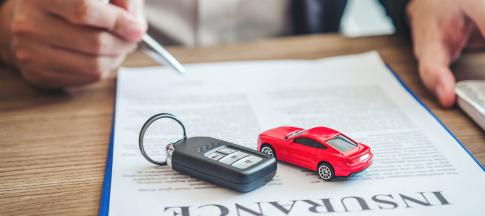
When it comes to getting behind the wheel while pregnant, there are a few things you can do to ensure you and your baby are safe.
Follow our guide to make driving while pregnant as stress-free as possible.
Whatever you do, always listen to medical advice when it comes to what is safe or not.
Should you wear a seatbelt when pregnant?
Seatbelts are always essential and should always be worn while you’re pregnant.
The only exception to this rule is if you have a medical certificate that was issued to you by your doctor which states you are exempt from having to wear one. However, this is rare.
Make sure that you’re wearing your seatbelt properly to reduce the risk of injury.
Your three-point belt should be properly adjusted so the lap section is under your stomach and across your hips.
This part should not rise over your bump.
The shoulder strap should be placed over your collarbone and between your breasts, following off to the side of your stomach. This placement will safeguard your comfort and safety.
Are airbags safe to use during pregnancy?
You should never switch the airbags off in your vehicle and there is no exception if you’re pregnant.
Airbags, like seatbelts, are essential for your safety. Make sure you adjust your seat further back to account for your bump when travelling.
Pregnant women are often concerned about using belts and airbags, but worry not, they are still safe for pregnant drivers.
How can driving be made more comfortable during pregnancy?
Whether you’re in control of the vehicle or just travelling in the passenger seat, allowing extra time for regular breaks is very important.
Breaks should be taken at least every 90 minutes, where you should stretch your legs and go for a small walk.
This will help with your circulation and ease any backache.
Wiggling your ankles and legs will also help with your circulation.
The NHS recommend drinking fluid regularly whilst travelling in a car, as well as eating natural, energy-giving foods such as fruit and nuts to help combat fatigue and dizziness.
Don’t drive if you feel particularly lethargic.
What should I do if I have a road accident whilst pregnant?
Even if the accident is minor, be sure to always seek medical advice from a healthcare professional.
In the event of a more serious collision, seek urgent medical attention immediately.
Should I talk to a doctor about driving while pregnant?
While driving while pregnant is often safe, you can experience various symptoms during your pregnancy, such as headaches and nausea, that may impact your driving ability.
If you are worried or unsure about driving, speak to your doctor – they will be able to advise you on what’s right for you and your baby.
Do I need to stop driving during my pregnancy?
While you don’t necessarily need to stop driving at any point during your pregnancy, pay attention to your body and how comfortable you are while driving.
If your bump is getting big and you’re starting to feel uncomfortable, perhaps avoid long journeys and opt to take public transport instead.
Again, you could also consider speaking to your doctor about this if you’re unsure of what to do.
What should I do if my car breaks down while I’m pregnant?
You should follow all the same steps as usual. Always carry a mobile phone with you in case you cannot find an emergency telephone line.
Check out our breakdown cover page for more information.
Can I drive after a caesarean section?
If you’ve given birth via c-section and are worried about driving, the first thing to do is talk to your doctor.
You should follow their advice, which is usually to rest for around six weeks before getting back behind the wheel.
This is largely to remove the risk for further injury, rather than an inability to drive on your part. If your doctor gives you the all-clear to drive, your insurance won’t be affected.


